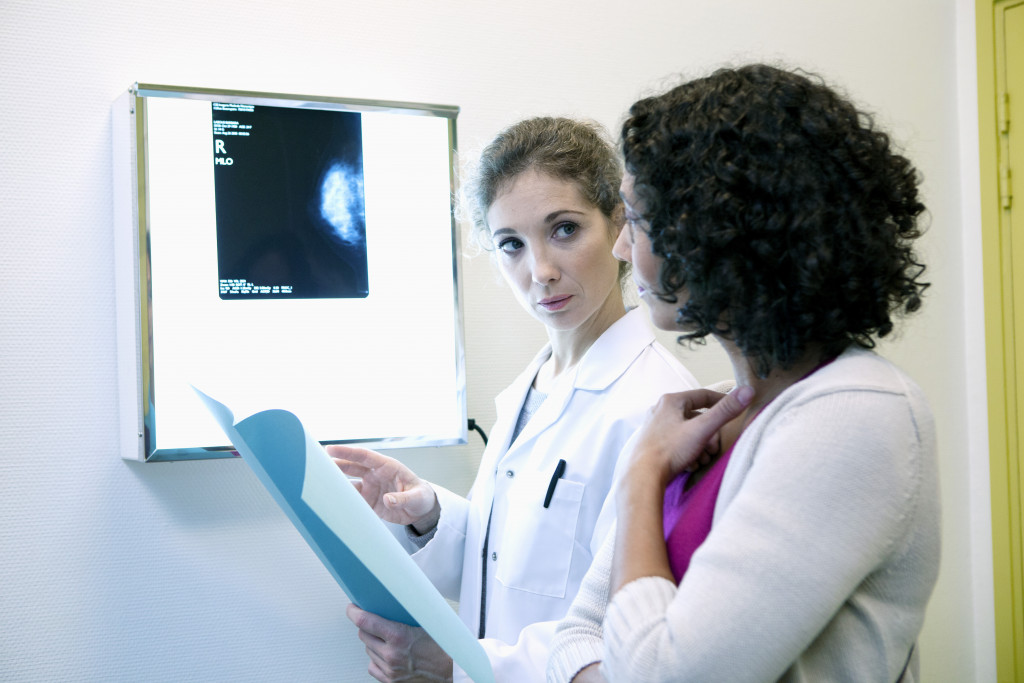As women, we are often the ones taking care of everyone else. But when was the last time you took care of yourself? If it’s been a while, or you’re not sure, now is the time to start.
Your health is important, and there are certain screenings that all women should have on a regular basis. This blog post will cover seven health screenings that every woman should make time for. With early detection, you can often treat conditions before they become serious.
1. Breast Cancer Screening
Breast cancer is the most common type of cancer diagnosed in women, with about 1 in 8 women developing breast cancer at some point in their lifetime. There are several ways to screen for breast cancer, including mammograms, clinical breast exams, and self-breast exams.
Mammograms are the most common form of breast cancer screening, and you should have one every 1-2 years starting at age 40. Clinical breast exams should be done every 1-3 years starting at age 20, and you should perform a self-breast exam every month.
2. Cervical Cancer Screening
Cervical cancer is the fourth most common type of cancer in women, with about 12,000 women being diagnosed each year. The human papillomavirus (HPV) is the main cause of cervical cancer, and most women will contract HPV at some point in their lifetime.
Fortunately, cervical cancer is one of the most preventable types of cancer. The best way to prevent cervical cancer is to get vaccinated against HPV. You should also have a Pap smear every 3-5 years starting at age 21.
3. Cholesterol Screening
Heart disease is the leading cause of death for women in the United States, and high cholesterol is a major risk factor. You should have your cholesterol checked every five years starting at age 20. If you have other risk factors for heart disease, such as diabetes or high blood pressure, you may need to be screened more frequently.
With early detection and treatment, you can often bring high cholesterol levels down and reduce your risk of heart disease. It’s important to talk to your doctor about your risk factors and how often you should be screened.

4. Oral Health Screening
Be it a man or a woman, oral health is essential for everyone. Good oral health starts with regular brushing and flossing, but it’s also important to see a dentist for regular checkups and cleanings. You should have a dental exam and cleaning at least once a year.
Your dentist can help catch problems early before they become serious. They can also help you maintain good oral health and prevent future problems. So visit the dentist’s office regularly for best oral health.
5. Diabetes Screening
If you have high blood pressure, are overweight, or have a family history of diabetes, you should be screened for diabetes starting at age 45. If you don’t have any of these risk factors, you can wait until age 65 to be screened.
Diabetes is a serious condition that can lead to many health complications. But with early detection and treatment, you can often manage diabetes and reduce your risk of complications. You can also learn how to control your blood sugar levels with diet and exercise.
6. Bone Density Screening
Osteoporosis is a condition that causes bones to become weak and fragile. It’s more common in women than men, and postmenopausal women are especially at risk. You should have a bone density test starting at age 65. If you’re at high risk for osteoporosis, you may need to be tested earlier.
There are several ways to prevent osteoporosis, including exercise, eating a healthy diet, and not smoking. You can also take medication to prevent or treat osteoporosis. So talk to your doctor about your risk factors and whether you should be screened.
7. Skin Cancer Screening
While skin cancer is more common in men, it’s still the most common cancer in women. Skin cancer screenings are quick and easy, and they can save your life. You should have a skin cancer screening every year.
You can do a self-exam at home, or you can have a doctor or dermatologist do an exam. During a skin cancer screening, your doctor will look for any suspicious moles or growths. If they find anything, they will usually take a biopsy to confirm whether it’s cancerous.
These are seven health screenings all women should have. Regular screenings can help catch health problems early when they’re often easier to treat. With early detection and treatment, you can enjoy a better quality of life. So talk to your doctor about which screenings you need and when you should have them.

